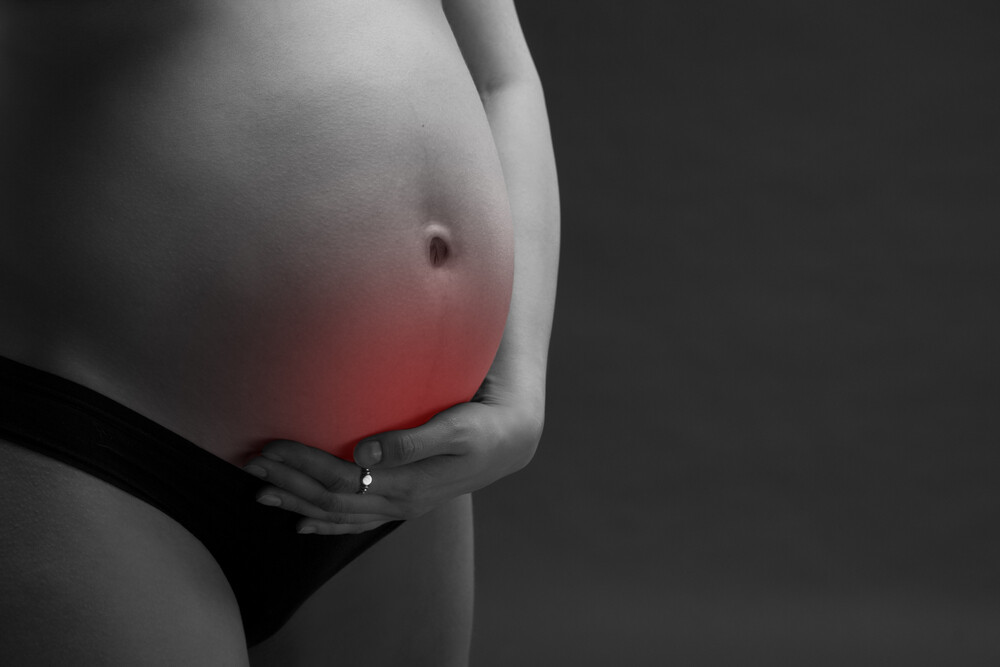More and more pregnancies are classified as “high-risk pregnancies”. But what does the note in the maternity pass actually mean for expectant mothers?
High-risk pregnancy – That sounds scary. But the term does not have to be. With the help of a list of questions, gynaecologists simply check what needs to be taken into account in pregnant women. If the doctor classifies the pregnancy as a high-risk pregnancy, the mother-to-be is checked and examined particularly closely.
How is a high-risk pregnancy determined?
As part of the regular check-ups, the doctor uses two questionnaires to assess your general state of health and talks to you about complications during the current pregnancy and previous pregnancies.
Indicators of risk pregnancy include:
- Bleeding
- High blood pressure
- Overweight
- Chronic diseases (e.g. diabetes, asthma, epilepsy, heart disease, thyroid disease, skeletal abnormalities)
- Age under 18 and over 35 years
- Multiple pregnancies
- Multiparent with more than 4 children
- Rhesus incompatibility
- Previous miscarriages, premature births or birth defects
- Previous C-sections
- Previous abortions
- Premature contractions
- Vein problems
- Emotional burdens
- Continued use of drugs, alcohol, nicotine or other drugs during pregnancy
- Placental insufficiency
- Chronic or repeated cystitis
- Gestational Diabetes
- Hereditary diseases within the family
If two of these circumstances apply to a pregnant woman, the expectant mother is already classified as a high-risk pregnant woman. However, it is not clear whether there is a real danger.
What does it mean if there is a high-risk pregnancy?
Don’t panic, even if you have the note “high-risk pregnancy” in your maternity record, this initially only means that your doctor will carry out the preventive examinations with particular care. You will have an appointment with your gynaecologist every four weeks at the beginning of the pregnancy. From the 28th week onwards, the interval is reduced to every two weeks. If necessary, additional ultrasounds and tests will be carried out.
To ensure that the birth is also as free of complications as possible, the maternity clinic should be well informed about the course of your pregnancy. In this way, special precautions can be taken in advance for the medical care of you and your baby during and after the birth, if necessary.
Who pays for the additional tests during a high-risk pregnancy?
Don’t worry! In the case of a high-risk pregnancy, the health insurance companies will of course cover the costs of further examinations.
High-risk pregnancy at 35 years of age: Why?
If you are pregnant and 35 years or older, your gynaecologist will automatically classify you as a high-risk pregnant woman. This is mainly due to the fact that, statistically speaking, the risk of developing gestational diabetes – a so-called pregnancy poisoning – during pregnancy is slightly higher than in younger women.
At the same time, the risk of chromosomal defects in babies increases the older the mother is. The best known abnormality is Down syndrome (or trisomy 21). While the risk of giving birth to a child with a chromosomal disorder is 1 in 1500 for a 20-year-old, it increases to 1 in 356 for a 35-year-old pregnant woman.
Many genetic defects can now be detected by prenatal diagnostics. If necessary, your gynaecologist can give you detailed advice on this.
High-risk pregnant, and now?
Very important: Do not panic! Keep in mind that 97 percent of all children are born healthy. And remember:
- You alone decide how many examinations you want to have carried out and with whom. You can also divide the preventive medical checkups between your doctor and the midwife – some doctors are not too happy about this, but it is your right. So don’t let yourself be put off if you would like to handle the examinations in this way.
- Also, always remember that a pregnancy is something natural and your body is made for it. So you should also trust your gut feeling.
Can the high-risk pregnancy classification be withdrawn?
Yes, a woman who is initially classified as a high-risk pregnant woman may well be downgraded during pregnancy. For example, if the tendency to bleed stops or the blood pressure returns to normal.

